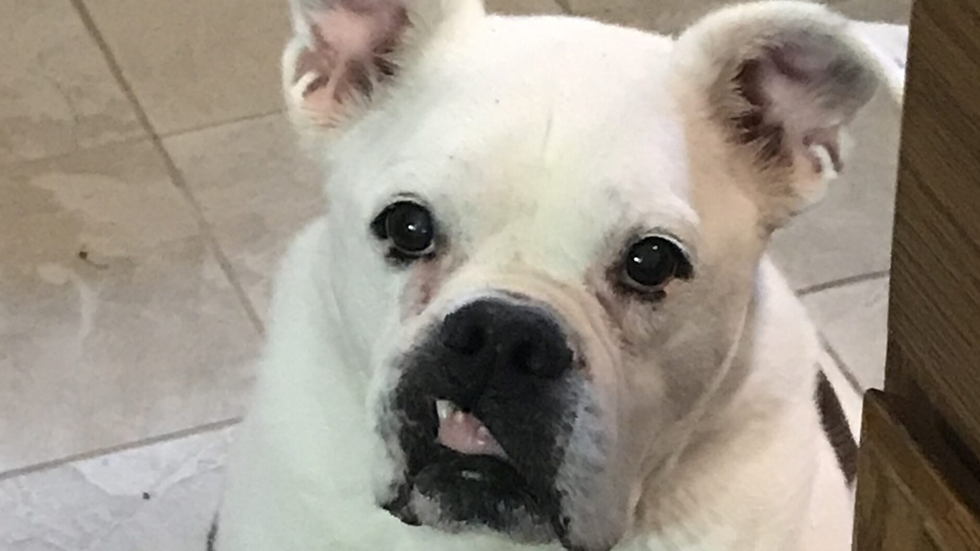They want to know if you are a good dog. “Who’s a good dog?” they ask, and they press the point with single-minded insistence, “Is it you? Is it?”
Your people, the ones you live with, the ones you love, take you to a place called “boarding,” where they want you to stay with the other dogs, the alleged good ones, who accept the absence of their people with good-natured resignation. These are the creatures who believe you can only change the system by working within the system.
You know better though. Even though your people tell you to be a good dog and say everything will be fine at boarding, it is plain that they do not like leaving you there. Once they have gone, you growl and snap because it is not in you to serve another master. You know you are not supposed to be in that place and so you resent these other people who would lead you about and despise the lop-eared credulity of the other dogs, the good ones who cause no problems. You stand by your convictions.
Months later, you experience the springy texture of damp, packed sand under your paws as you run down the beach chasing after the frisbee thrown by one of your people. You see then the reward for discernment, for being true to yourself: good dogs get boarded, but bad dogs go on vacation.
Strangers want to pet you. The softness of your fur and the pliable smoothness of your ears seem to invite their touch. You are not a pillow though or a sweater hanging on a rack. You are a living being with clear preferences. You snarl, lunge, and snap, and sometimes you break the skin with your teeth. After that, they keep their hands to themselves.
You like to chase other animals: rabbits, squirrels, cats, and deer. Your ferocity and determination are genuine in these pursuits. You run toward the trio of deer standing on top of the hill, sprinting as fast you can through the long yolk-colored grass. You know your people can now only see you as movement in the field. The deer get away unharmed, like they always do. Your body was not bred for speed or endurance, but still you retain the vital stamp of your wolf ancestors. When all is said and done and breed standards be damned, the wildness in your heart has not been not eroded.
You love your people and so you protect them and are loyal to them as only a dog can be. You know too who your people love. One of your people refers to various others as her friends, but you know that group is more like a set of circles placed one inside the other. The smallest one contains fewer people than she thinks. In the same way that you lean into her to have your back scratched or ears rumpled, she too leans into them. You love these small-circle friends as well and seek out their attention and praise.
You like to be in the kitchen when food is being cooked or lurking near the table when it is being eaten. Your people admonish you not to beg, tell you to move out of the way. You are expelled from the kitchen on a routine basis, when your person, the one who is cooking, says you must get out. “Go, go now,” she says. And so you leave, but you make your way back in, little by little, while she is distracted, until you have resumed your former position. “How did you get back in here?” she might ask. Her sigh, loud and exaggerated, is more resonant and pleasing than she realizes. You push your nose against her leg. She pets you, scratching behind your ears with such vigor that you grunt in satisfaction. She washes her hands and goes back to chopping and arranging the components of dinner. Every time, without fail, there is some loose bit or piece that doesn’t fit in with the cooking or that is somehow extra. These delicious bits are tossed in the air to you. Persistence and patience win out. It never pays to stay away.
One day, your people leave for an afternoon. You see nothing strange in this. Then the front door blows open without warning, so you race to the entryway, barking in a wild, savage voice, ready to attack the person who would intrude upon your home. There is no one there. It was only the wind. Your heart still pounding with adrenaline, you assess the situation. The door cannot stand open when your people are not home. So you exit the house and sit at full attention on the damp, sisal welcome mat. People and dogs pass by; you even spy a plump squirrel on the edge of the lawn, eating something from its tiny hands. You have heard the compliments heaped on other dogs, exclamations of how those dogs just love people and wouldn’t hurt a fly and like saying hello to everyone. You are not them. You are not some good-natured doofus who would put her paw in anyone’s lap. You will not be distracted. You remain alert and tense, a fierce, devoted protector.
You let down your guard only when your people return. “How did you get out here?” they ask. They piece the story together. They forgot to pull on the knob to make sure the door was tightly shut. “And you sat on the porch and guarded the house the entire time?” They pet and kiss you and feed you a slice of cold, orange cheese because they know it is your favorite. You are praised and rewarded. Your actions are described as “amazing.” These people that you love call you a good dog.
As you bask in their love and attention, you discover an essential fact. Dogs are very lyrical, and so to you this understanding is, like ee cummings would say, the root of the root and the bud of the bud. It is the wonder keeping the stars apart. No matter if you are a good or a bad dog, your people, the ones lean into, will love you just the same.



